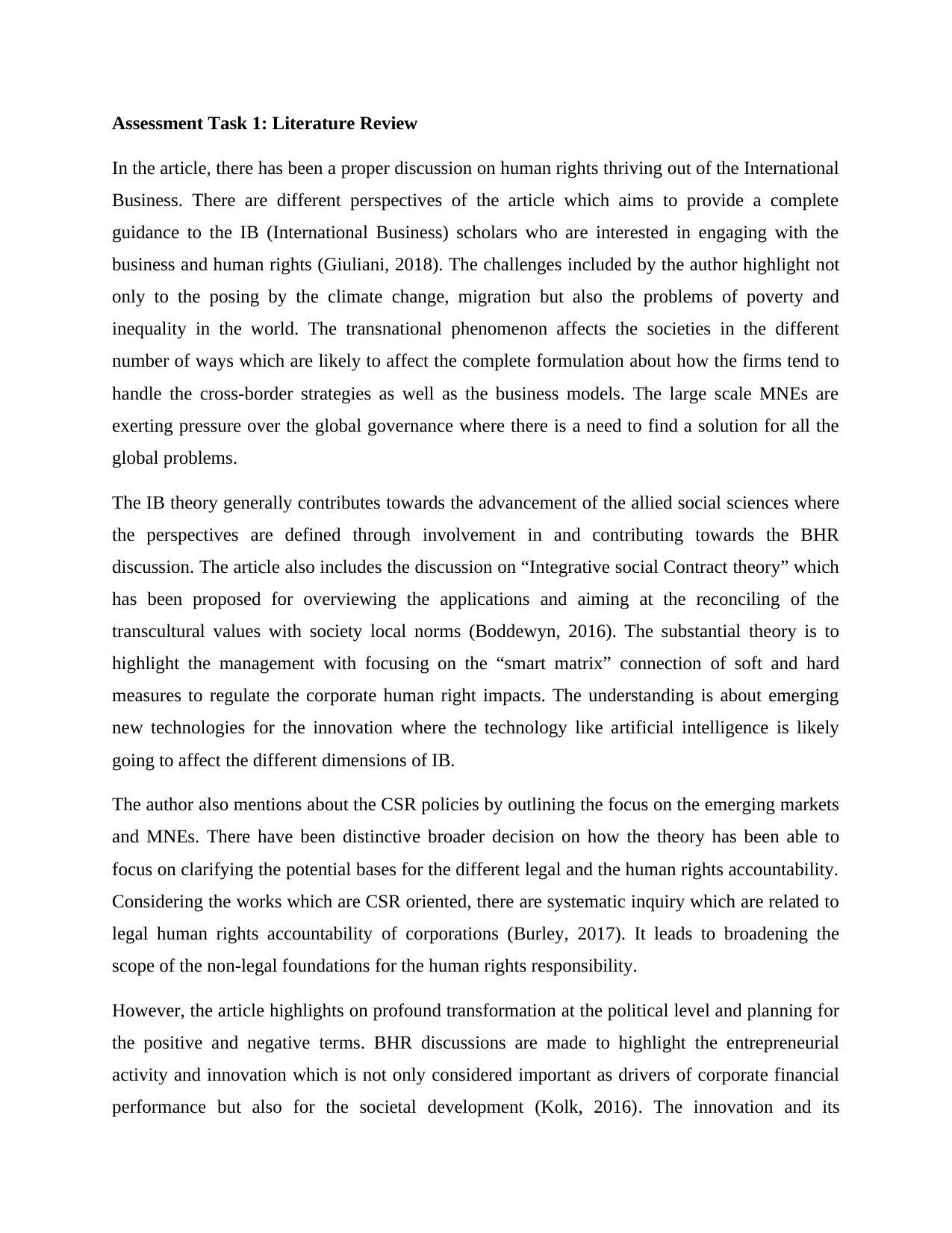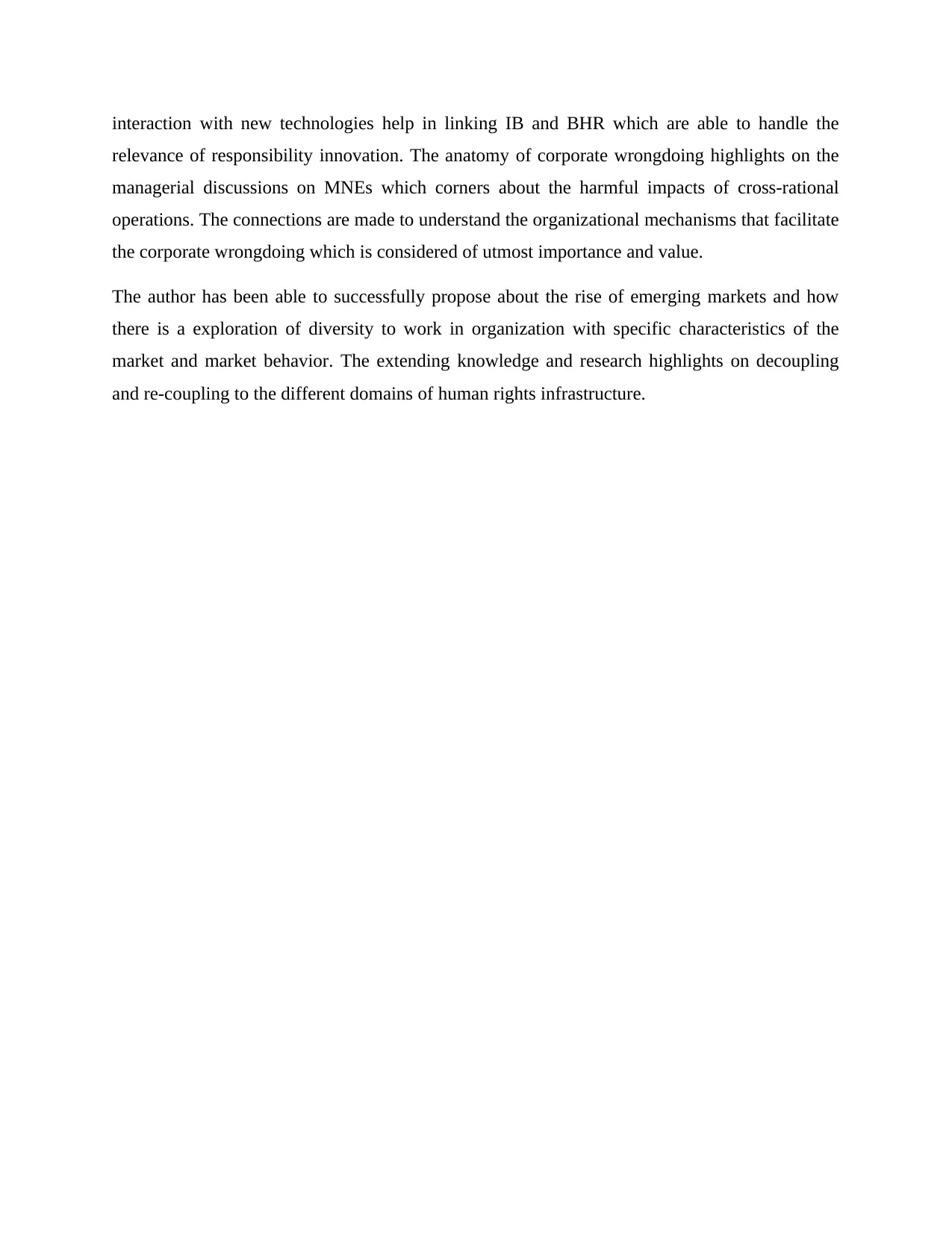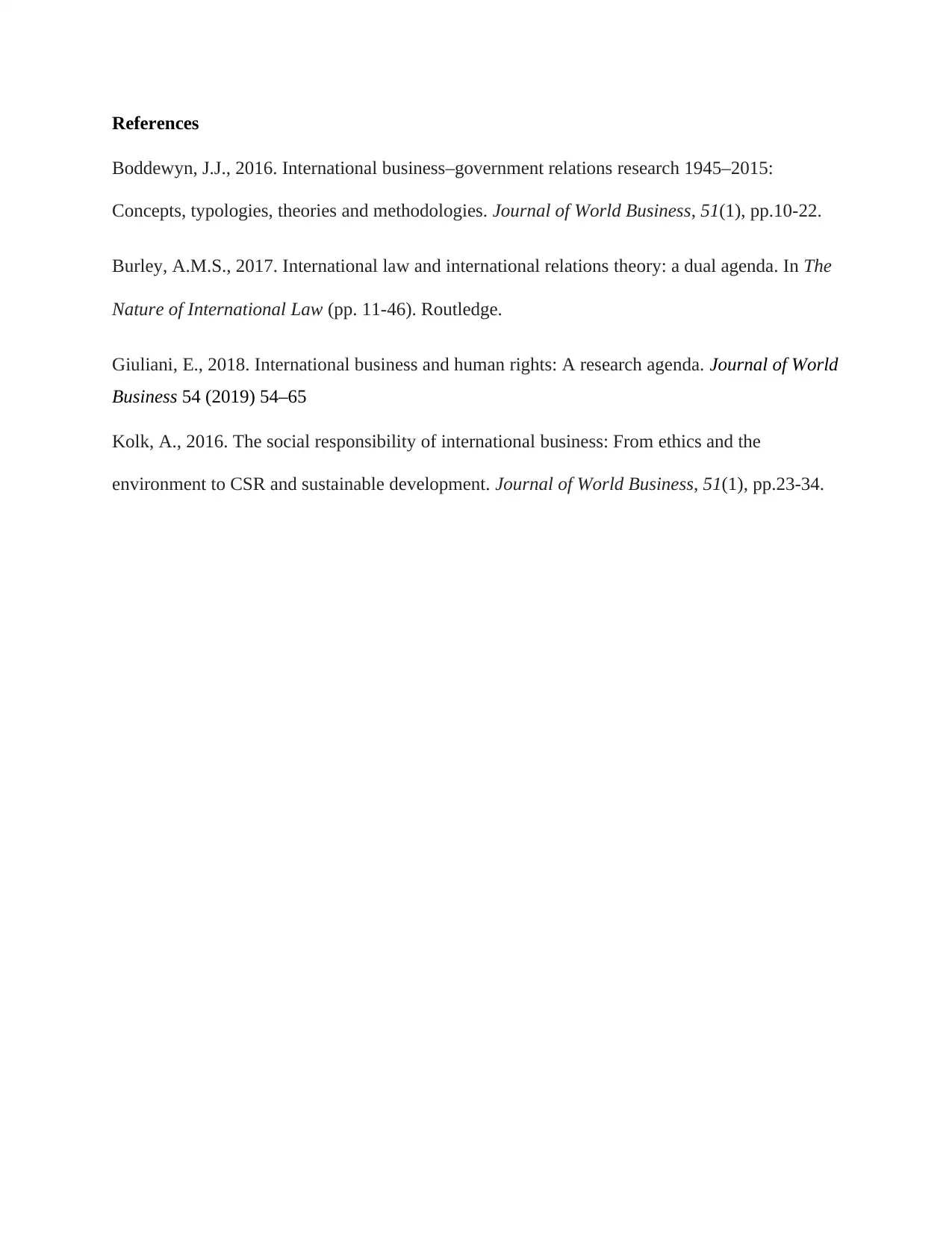University Business and Human Rights Literature Review Assessment
VerifiedAdded on 2023/01/16
|3
|679
|36
Literature Review
AI Summary
This literature review examines the intersection of International Business (IB) and Human Rights, focusing on the research agenda proposed in the article. It highlights the challenges posed by climate change, poverty, and inequality, and how multinational enterprises (MNEs) navigate cross-border strategies and business models. The review discusses key concepts such as the Integrative Social Contract theory, the role of CSR policies, and the impact of emerging technologies like AI. It also delves into the anatomy of corporate wrongdoing and the rise of emerging markets, emphasizing the importance of innovation, responsibility innovation, and the decoupling and re-coupling of human rights infrastructure. The review references key scholars and their contributions to understanding the complexities of BHR within the context of globalization.
1 out of 3










![[object Object]](/_next/static/media/star-bottom.7253800d.svg)